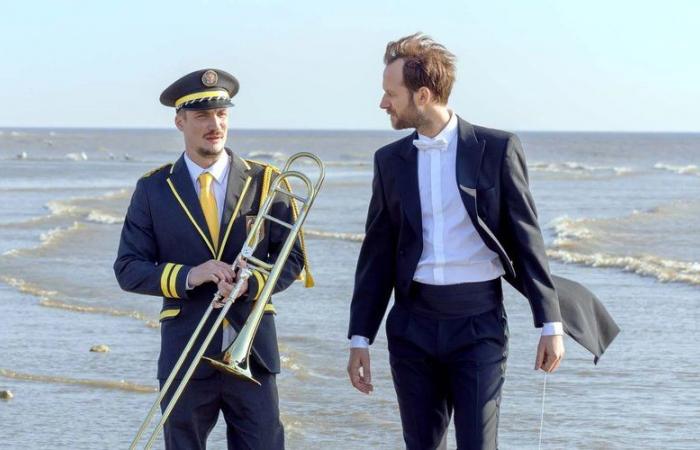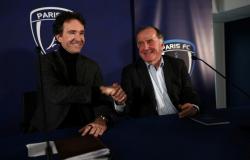
Led by the amazing Pierre Lottin and Benjamin Lavernhe, “En fanfare”, the new comedy by Emmanuel Courcol (after the already very nice “Un Triomphe”) is a feel good movie which sacrifices nothing to the complexity of reality and pleads for harmony between social classes. What if we had THE successful popular comedy of the end of the year?
In the middle of rehearsal, Thibaut Desormeaux (Benjamin Lavernhe), renowned conductor, collapses. The diagnosis is clear: he has leukemia, he needs a bone marrow transplant. He immediately thinks of his little sister. But thanks to the compatibility test, he discovers that he was adopted and, as if that were not enough, he has a younger brother, Jimmy (Pierre Lottin), a school canteen employee who, in his spare time, , plays the trombone in the brass band of his village in the north of France.
How many films are, like En fanfare, based on the opposition of opposites? In France, it has even become a cliché of comedy which claims to be popular but far too often turns out to be simply demagogic to organize the meeting of parallel and therefore irreconcilable worlds. But En fanfare is not a film like the others: it is a successful film, very successful.
There is certainly the upper social class, great music, financial ease, fame and Paris on one side, and the modest environment, fanfare, humility, anonymity and the North… But Emmanuel Courcol who had already defied expectations, and delighted, with A Triumph with Kad Merad, avoids the clichés that this binary presentation calls for. Because it is about the meeting of two brothers who did not know each other and who can no longer do so.
It is vital at the start that Thibault goes to Jimmy but the first nice surprise is the total absence of suspense there: Jimmy is going to help Thibault not because they are brothers (because it is going to be that they become one) but because he can, period. He makes a donation and in doing so, to venture here to quote Marcel Mauss, he opens up the possibility of the cycle of giving-receiving-returning which allows us to create society. When Jimmy's municipal band finds itself without a leader, it is natural that Thibault will donate his baton.
But En fanfare does not stop there either, which also questions with simplicity but accuracy social determinism and the fraternal bond, again thwarting prejudices, whether those of the characters between them, or ours, of spectators. Instead of supposedly funny clashes and dissonances, the film, which does not forget that it deals with brothers having perfect pitch as their (un)common point, prefers to feature different ways of harmony.
Evoking with the same seriousness the societal context in which it takes place as the love of music that runs through it, En fanfare ultimately achieves the popular grandeur of British social comedy, but in the French way. Better than a feel good movie, basically, a feel better: after seeing (and listening to) it, we feel better, we feel together.





